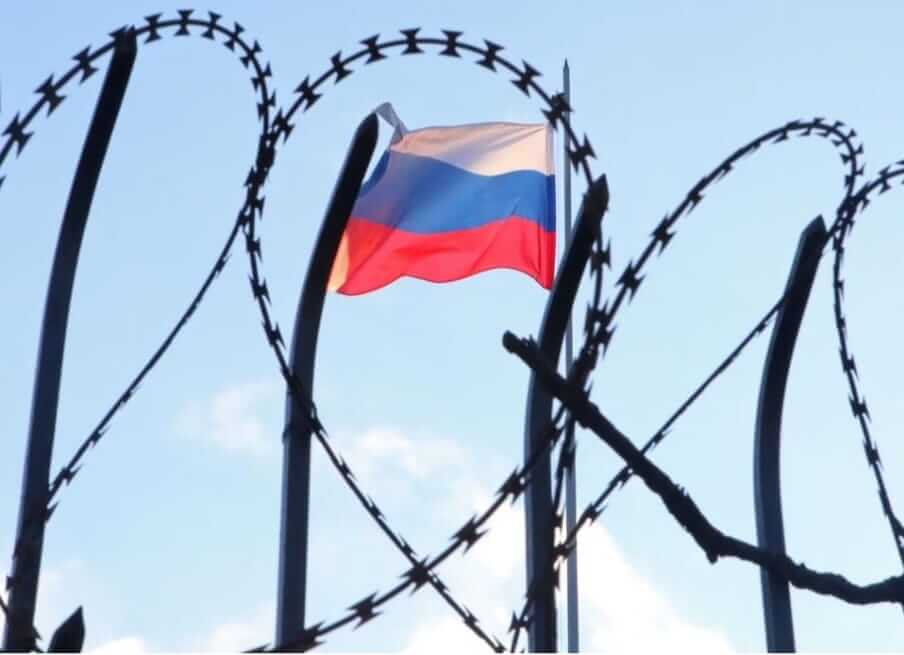Russia’s new foreign policy strategy sounds like one of those papers that will forever stay in a drawer, useless, because it cannot be implemented. Moscow continues to simulate important state affairs, specifically foreign policy, and it still tries to adapt that policy to new circumstances in the world.
In fact, in real life, Russia has been excluded not only from mainstream world movements, but also from basic diplomatic communication with the most influential countries.
The fact that Russia has been presiding over the UN Security Council since April 1 does not make it any more significant than it was. Its presidency is a matter of ordinary monthly rotation of the 15 members of this body.
The fact that the Security Council has been presided over by a member of the UN condemned by 144 other members for aggression against a peaceful and independent state only speaks of the state in which the UN finds itself.
Russia has been almost completely isolated from the UN and kicked out of its Human Rights Council. In other important places, like the OSCE, no one wants to listen to Russia’s representatives. The head of the Russian diplomacy cannot travel to any European capital, even if someone would like to receive him.
Russia’s head of state was accused of war crimes before the International Criminal Court, which is recognised by 123 countries in the world: two-thirds of the UN members. Talking to him, any contact, or let alone cooperation, could be misinterpreted as complicity.
Such a country is now adopting some kind of foreign policy strategy, and the only foreign policy it acknowledges has been the destruction of another sovereign country, a member of the UN, and the killing and expulsion of its population.
The novelty in this paper is that Moscow now considers the West, led by the US, to be an “existential threat”, that is, enemy states. Sergey Lavrov specified that the EU represents an “enemy organisation” to Russia.
He said that they have been turning to other parts of the world, where they will develop cooperation, and probably find understanding for what they call foreign policy.
Russia’s reliance on an alliance with China has been enormous. The recent visit of the Chinese leader, Xi to Moscow was experienced as a triumph, and as the beginning of the creation of a new world.
China has been viewed as the only way out of the disaster, primarily economic, into which Putin has pushed his country and his people. Recently, he admitted to his citizens that Western sanctions would last for a very long time, and that they need to produce everything they bought in the West until recently (which has been almost everything) or compensate with the help of friendly countries, which is actually China.
China has been silent and cold regarding Russian enthusiasm. China has plans to rearrange the world order to its own liking, but not hand in hand with Russia. A high-ranking Chinese diplomat said recently that his country is not on Russia’s side regarding the aggression against Ukraine, that it did not send weapons to Russia, and that the formulation of “boundless friendship” from one of the earlier meetings between Putin and Xi was “nothing but rhetoric”.
The new Russian foreign policy strategy is, therefore, a worthless piece of paper, out of touch with reality. It best depicts the state of mind in the Kremlin, where the world is viewed from the mythical clouds of great Russia, and its historical task is to subjugate all that it considers a part of Russia. This state of mind is best described by the fact that in this paper Russia considers itself a “civilisation”.
However, even a worthless thing, such as the new Russian foreign policy strategy, could sometimes give rise to some useful consequences.
With this document, Russia has raised a new “iron curtain” around itself. It has admitted that it no longer intends to have relations with Europe and the West in general. Russia wants to build its future with the nations from the East.
This is a useful fact. No one in the West isolated or rejected Russia as an entity. Western sanctions, which have been hard to endure, do not apply to the state and the people, but to individuals with a first and last name, criminals, and robbers from the top of the state and business.
Every European, British, American, and Canadian decision on sanctions has been, in fact, a list of individuals and companies that support Putin’s invasion of Ukraine with their business and money. The fact that their personal, financial and even legal problems have been presented through propaganda as a problem for the entire country is a matter that must be solved by the Russian people.
With its new foreign policy strategy, Russia made Serbia’s job easier, clearly raising a new iron curtain between its conquering “values” and Europe. If Russia says that the EU is an “enemy organisation”, and Serbia has been trying to join the EU, and not Russia, then there should be no dilemma about the choice. It can no longer be presented as Western pressure on Serbia. This is a clear division line drawn in Moscow.
Strategies, as a rule, refer to long periods. We assume that this is also the case regarding this document. If Russia considers Europe and the West “enemies” in the long term, and it does, Serbia has no reason to wait for those relations to become better sometime in the distant future to be close to both again. Russia no longer wants that either, at least that’s what it says in its foreign policy strategy. Despite the fact that the paper in question has the value of a butcher’s paper. Needless to say, with traces of blood.
